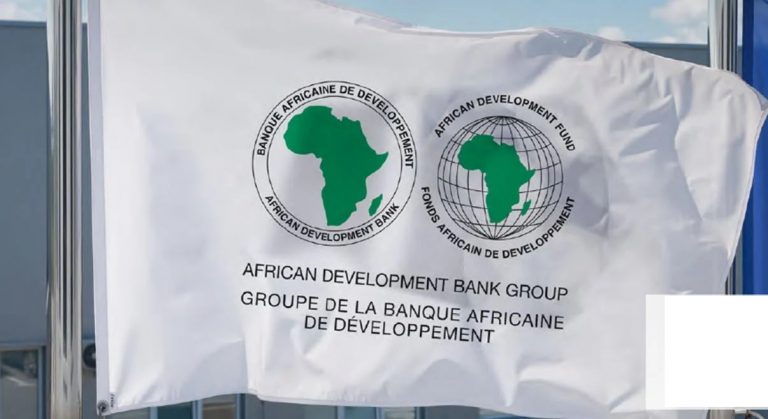
The African Development Bank (AfDB) Group is rolling out a bold $6 billion investment strategy to transform Africa’s fragile healthcare systems and reduce the continent’s reliance on imported drugs.
The initiative, unveiled at the 2025 AfDB Annual Meetings in Abidjan, marks one of the most ambitious continent-wide health interventions in recent memory—divided into two $3 billion programmes targeting infrastructure and local pharmaceutical manufacturing.
AfDB President Dr. Akinwumi Adesina, while presenting his 10-year scorecard, emphasized that the investment was already underway, describing it as a critical step toward ensuring Africa can both deliver and produce healthcare solutions at scale.
Register for Tekedia Mini-MBA edition 19 (Feb 9 – May 2, 2026).
Register for Tekedia AI in Business Masterclass.
Join Tekedia Capital Syndicate and co-invest in great global startups.
Register for Tekedia AI Lab.
“Today, the African Development Bank Group is implementing a $3 billion programme for quality health infrastructure and a $3 billion programme for the development of local pharmaceutical manufacturing capacity in Africa,” Adesina announced.
Central to this vision is the newly established African Pharmaceutical Technology Foundation, an institution designed to break Africa’s historical exclusion from proprietary pharmaceutical technologies. The foundation will help African countries gain access to intellectual property rights and safeguard essential manufacturing know-how for medicines and vaccines.
Adesina’s remarks came as the Bank marked what he called “a decade of delivery,” particularly in agriculture, food security, and energy access—three areas where the AfDB says it has either mitigated or outright reversed looming crises.
The Bank’s Feed Africa strategy, launched in response to growing food insecurity and exacerbated by the war in Ukraine, reportedly helped 104 million Africans achieve food security. The Bank said its interventions also gave 13 million farmers access to improved agricultural technologies across the continent.
When the war in Ukraine triggered fears of a food crisis due to blocked exports of wheat, maize, and oilseeds, the AfDB moved swiftly with a $1.5 billion emergency food production facility. According to Adesina, the facility exceeded expectations.
He said in just two years, our support allowed 14 million farmers across 30 countries to have access to improved seeds and fertilizers. This led to the production of 44 million tons of food—116% above the target—worth $17.3 billion.
Ethiopia’s Wheat Revolution and a $72 Billion Food Pledge
One standout example is Ethiopia, which expanded its heat-tolerant wheat-producing areas from just 5,000 hectares in 2018 to more than 650,000 hectares by 2023. The result: self-sufficiency in wheat within four years—a feat that was once seen as far-fetched in a region traditionally reliant on imports.
The momentum gained from such successes was evident at the Feed Africa Summit in Dakar, where over 30 African leaders signed the Food and Agriculture Delivery Compacts. The summit mobilized a staggering $72 billion in global pledges to back national food security agendas, which were later endorsed by the African Union.
Energy Access Push Gains Steam
Buoyed by gains in agriculture, the AfDB is now turning its attention to another foundational issue—energy. In partnership with the World Bank, the Bank launched Mission 300, an ambitious drive to connect 300 million people to electricity by 2030.
This culminated in the Africa Energy Summit in Dar es Salaam, co-chaired by Tanzanian President Samia Suluhu Hassan, where more than 48 African countries endorsed the Dar es Salaam Declaration on Energy Access.
“Leaders at the summit unanimously endorsed the Dar es Salaam Declaration on Energy Access, with the full support of the African Union,’’ Adesina said.
The Declaration reflects a rare continent-wide consensus to accelerate energy delivery through a combination of national policy shifts, regional electricity grid interconnections, and increased investment in renewables and transmission infrastructure. The Bank reported that $55 billion has already been mobilized to support these efforts.
A Coordinated Future
Adesina’s report card paints a picture of an institution not merely reacting to crises but proactively reshaping the African development narrative—from health and food to energy. The Bank is banking on high-level coordination and massive financial commitments to drive systemic changes across sectors.
With the launch of the African Pharmaceutical Technology Foundation, a major step has been taken to change how the continent responds to health emergencies—ending dependence on imported vaccines and treatments that became painfully evident during the COVID-19 pandemic.
The broader investment push underlines a coordinated, long-haul approach by the AfDB to ensure that Africa’s economic growth is not only resilient but also anchored in self-reliance and innovation.



